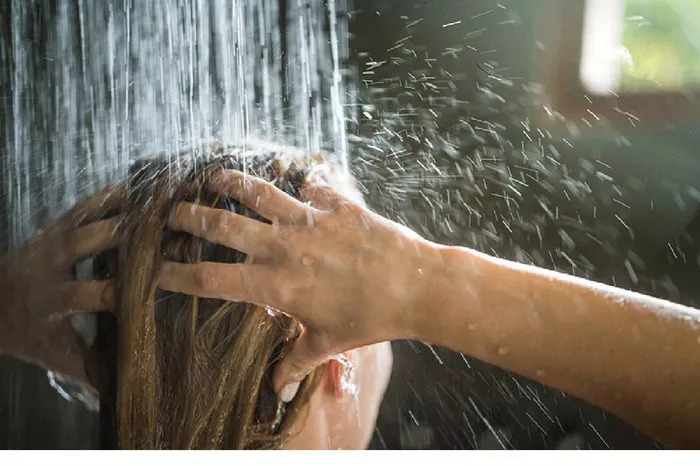Hair Health Hotline offers a direct line to dermatologists, trichologists, hairstylists, and beauty professionals. In this series, we delve into common hair and scalp concerns, providing science-backed solutions for optimal hair care.
For decades, concluding a hair-washing ritual with a cold rinse has been a tradition passed down through generations, revered for its alleged benefits like enhanced shine and strengthened hair. The question arises: do scientific principles validate these age-old beliefs?
To unravel the truth behind this icy finale, we consulted Harikiran Chekuri, MBBS, MS, a certified dermatologist, medical head of ClinicSpots, and founder of Redefine Clinic. Join us as we dissect the tangible effects of cold rinses on your hair and scalp, determining if it’s a worthwhile addition to your hair care routine.
Q: Is there any real benefit to doing a final rinse with cold water after shampooing and conditioning?
A: In short—yes. Dr. Chekuri affirms the merits of cold water concerning hair health. Cold water, by closing the hair cuticles, preserves moisture and nutrients while repelling dirt and bacteria. This yields softer, smoother, and shinier hair, less prone to breakage or frizz. For those with color-treated hair, a cold rinse might extend the vibrancy of the dye.
Dr. Chekuri suggests that cold rinses also promote overall hair health by enhancing oxygen delivery through improved blood circulation in the scalp. The result is not only healthier hair but also hair that’s more manageable and easier to style.
How Cold Water Influences Scalp Health
Concerning the scalp, Dr. Chekuri explains that cold water can reduce inflammation, irritation, and itching. It also balances the scalp’s pH level, preventing issues like dandruff and infections, and provides relief from the effects of heat, chemicals, and styling products. Cold water regulates sebum production, particularly beneficial for those with oily hair.
While research supporting it is limited, Dr. Chekuri notes that experts believe cold water stimulates blood flow to the scalp, nourishing follicles and potentially promoting hair growth—a concept loosely related to the post-workout cold plunges done by athletes to improve blood vessel elasticity.
Impact of Cold Water on Product Effectiveness
This simple rinse may also enhance the efficacy of your hair products, sealing in the beneficial properties of conditioners and leave-in treatments. Dr. Chekuri emphasizes that cold water helps embed moisturizing and nourishing ingredients, preserving the active elements of treatments such as antioxidants, proteins, or vitamins. This, in turn, fortifies the hair, making it more substantial and resilient.
Considerations and Drawbacks
The primary drawback to cold water rinses is the discomfort it may cause, especially during colder seasons or for those sensitive to low temperatures. Dr. Chekuri advises using lukewarm water instead of freezing water and limiting the duration and frequency of cold rinses to prevent temporary constriction of scalp capillaries, reducing blood flow and oxygen delivery.
In Conclusion
The benefits of cold rinses in a hair care routine are diverse, but their effectiveness depends on individual factors such as hair type, scalp conditions, and personal preferences. Striking a balance between promoting hair health and personal comfort is key to crafting an optimal routine.


